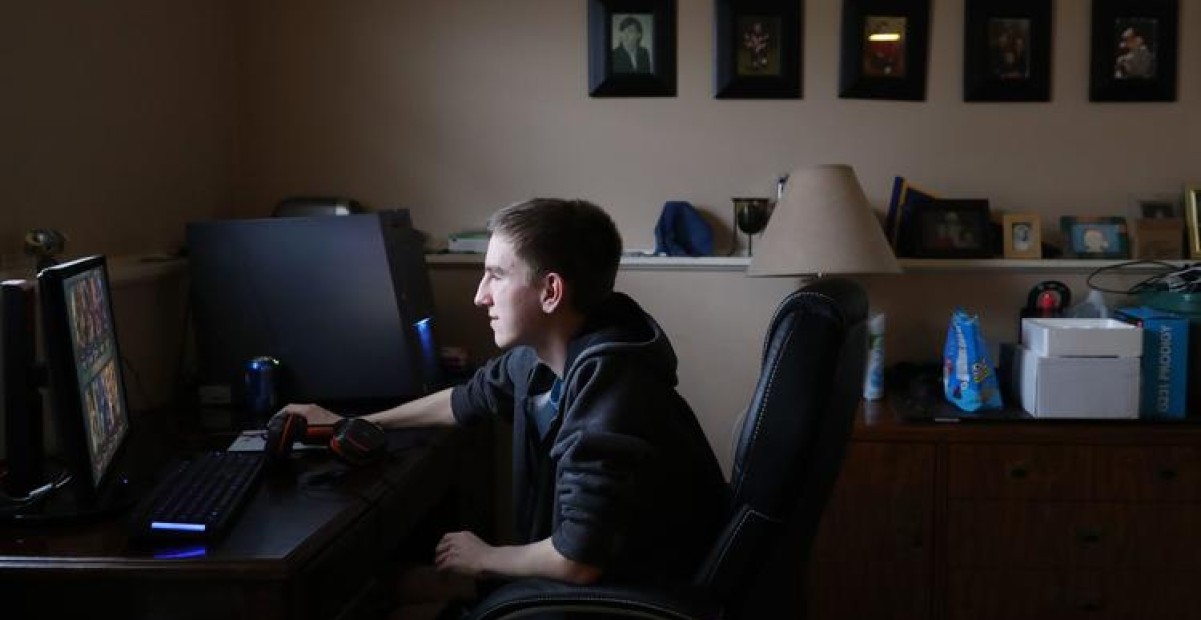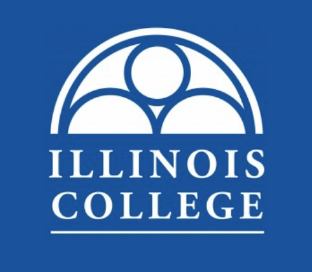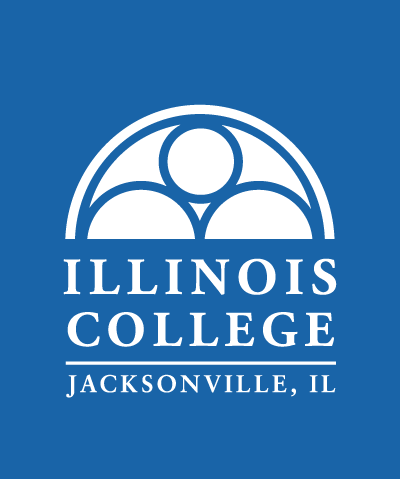At some colleges, the most sought-after sports recruit on campus might just be a video gamer
While competitive video gaming has been around for decades, the formalized college scene started only in 2014.

News story by John Keilman, Chicago Tribune
Robert Wieber, a 17-year-old senior at Palatine High School, is one of the hottest college sports prospects around, drawing attention from numerous scholarship-granting programs.
The attention befits his status as one of the nation’s best in his pursuit — he is ranked among the top 0.01 percent — but Wieber and his father still seem a bit amazed. His sport, after all, is a video game.
“My dad’s kind of blown away by everything that’s happened from me sitting at my computer all day,” said Wieber, a Challenger-level mid laner in the game “League of Legends.”
College esports recruiting isn’t yet like Southern Cal and Notre Dame fighting over an all-star linebacker, but it appears headed in that direction. As more schools roll out scholarship-granting programs, they’re jousting over top players by offering increasingly plush amenities and evermore lucrative offers.
“If you’re going for the best, they’re going to have four or five others schools going after them too,” said Callum Fletcher, coach of the fledgling esports team at Illinois Wesleyan University in Bloomington.
That is forcing college coaches to be resourceful and relentless as they sell their schools. The intensity has surprised high school esports advisers, who say this kind of recruiting barely existed a year ago.
“The amount of money they’re offering students is unbelievable,” said Amy Whitlock, who coaches Oswego East’s team. “If you’re good enough, you go for free. That just blows my mind.”
Started in Chicago, growing fast
While competitive video gaming has been around for decades, the formalized college scene started only in 2014, when Chicago’s Robert Morris University began awarding athletic scholarships to skilled “League of Legends” players. It was conceived as a way to stand out from the crowd and attract students who might otherwise eschew higher education.
Today 71 colleges field varsity-level teams, said Michael Brooks, of the National Association of Collegiate eSports, and together they offer scholarships worth $9 million — a figure he expects to double this year.
As the novelty has worn off, he said, colleges that used to count on players coming to them have had to start hunting.
“It’s no longer unique,” he said. “They don’t receive the amount of national attention they used to, so coaches pivoted and started reaching out to gamers.”
Esports recruiting is similar to recruiting for football, basketball or any other traditional sport: Coaches scout talent through video, in-person visits or word of mouth, then try to persuade the best to choose their school with generous scholarship offers and sparkling facilities.
But there are notable differences. College coaches can have a hard time identifying prospects because high school esports teams are still relatively rare, and because gamers usually compete under made-up handles, not their real names.
And while video games such as “League of Legends” rank players, those rankings can be manipulated through a scheme known as “boosting” — paying a more skilled player to log onto your account and play for you.
Justin Bragg, who heads Illinois College’s esports program, said savvy coaches can see through that ploy by watching a player compete at a tournament instead of relying solely on the ranking.
It’s pretty easy to tell when it’s happening,” said Bragg, a highly ranked “League of Legends” player himself. “If you’re playing against way better players, and you’re doing things someone at that level shouldn’t be doing, I’ll be able to tell right away that you’ve boosted your account.
His school, located in the central Illinois town of Jacksonville, offers esports scholarships of up to $20,000, about half the cost of attendance. Illinois Wesleyan, meanwhile, offers a max of $2,000, but Fletcher said additional academic scholarships can take the total award much higher.
Fletcher said he takes several approaches to recruit players, from visiting high schools to using in-game messaging apps to making cold calls (esports are not governed by the NCAA, and thus coaches face no restrictions on contacting prospects).
“There’s no right or wrong answer,” he said. “Any opportunity to get in front of students is a win.”
Fast computer, fancy chairs: The esports arena
Robert Morris, the esports pioneer, still attracts plenty of unsolicited interest from high school players, program founder Kurt Melcher said. But he said the key to getting top talent is to have coaches who are embedded in their games’ communities and adept at communicating with prospects.
His school, in downtown Chicago, also boasts an esports arena with ultra fast computers, fancy chairs and sharp monitors. Other schools are building similar showcases, Melcher said, a sign of one-upmanship that will likely accelerate.
“I think we’ll see over time a facilities war similar to top-end athletic departments,” he said. “It’s important to high-level players. What kind of access will they have to their (gaming) system? What is the system? Do they have to share it?”
High school esports coaches, meanwhile, are still getting used to the whirl.
Taft coach Todd McFarlin, co-director of the newly formed Illinois High School Esports Association, said some colleges have asked for roster lists. Oswego coach Ed Cann said scouts regularly approach him via social media.
Whitlock, of Oswego East, said she has had to ask her school’s athletic director for guidance on how to handle recruiters.
“We had a little bit (of attention) last year,” she said. “This year it’s much more aggressive.”
One of her players, 17-year-old senior Christian Varacalli, first heard from Illinois College two months ago. The courtship moved quickly, and he recently accepted a scholarship offer that will pay for a good chunk of his education.
“It’s definitely a blessing to be part of the first generation (of college gamers), for my family, for everyone else,” he said. “But I feel that in the long-term it will become the norm.”
No joke: College money for gaming is real
Most varsity teams so far are at small colleges, and scholarship money isn’t enough to tempt some students to enroll. Stevenson High School esports sponsors James Barnabee said one of his students last year turned down an offer at a small school to attend the University of Wisconsin at Madison.
But even nonscholarship programs are looking for talent. Aviral Saxena, an 18-year-old Palatine High School senior, said he has been hearing from Big 10 schools who want him to compete on their club teams.
“Over the last four years, it’s grown to the point where it’s expected now for schools to have programs,” he said.
Brooks, of the National Association of Collegiate eSports, said he expected recruiting to become a more streamlined process, with showcases, combines and online services that mimic what’s already done in traditional sports. Game publishers also are creating tools that will help prospects and coaches connect, he said.
All in all, it’s a good time to be a gamer.
“I’ve been playing video games my whole life, and when the school started a team, I thought it was a joke,” said Oswego High School senior Shane Smykal, who has received a scholarship offer from Indiana Tech. “But as it picked up momentum and all these colleges started having teams, it’s become tangible and real. It’s really exciting.”


